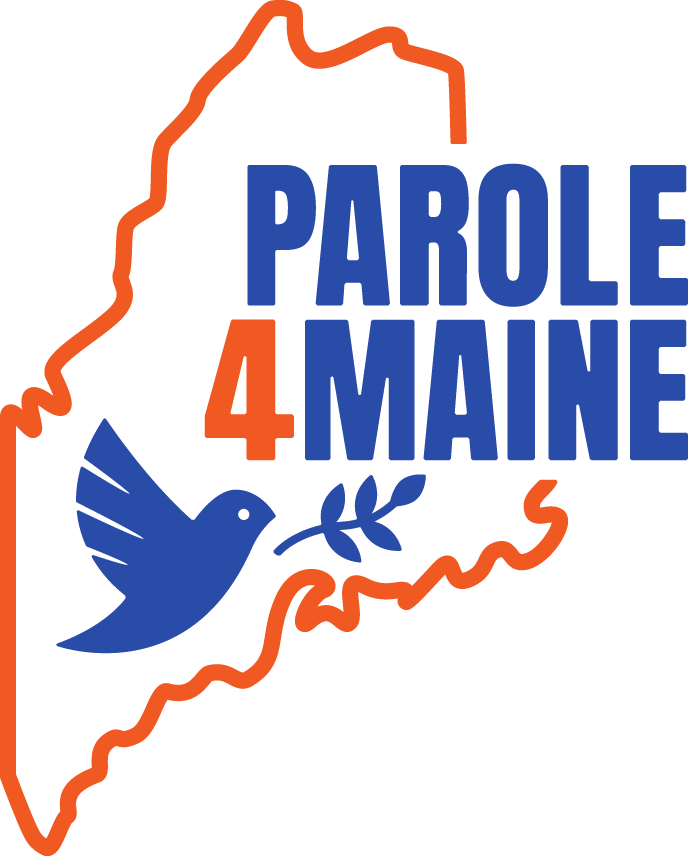VICTIM NOTIFICATION
The parole bill requires that victims be notified and updated throughout the parole process in a sensitive and trauma-informed way.
Just as the applicant, victims are notified at every step of the process. Victims are notified of the parole hearing itself, the results of the hearing (granting or denial), and the conditions of parole (if granted). If the applicant appeals the decision, the victim is notified of the appeal and the result of the appeal.
Section §5827, Subsection 1 & Section §5826, Subsection 5
Maine DOC’s Department of Victim Services will be in charge of notification. The parole board itself will not communicate with victims. The Victim Services staff member placing the call will be qualified to provide trauma support and referrals.
Section §5827, Subsection 1, Part A
Victim Services will also communicate all rights and supports throughout the parole process. Victim/Offender Dialogue (also referred to as Restorative Conferencing or Victim Impact Dialogue) option(s) are available through independent organizations and the Maine DOC. Section §5827, Subsection 1, Part B Advocacy and therapeutic support available to them in their area through community-based programs (including, but not limited to: victim advocacy organizations, counseling services, and other support groups).
Section §5827, Subsection 1, Part B
victim support
Parole-4-Maine listens closely to victims’ advocates, both privately and in public hearings, to make sure Maine’s parole restoration bill is as considerate and caring as possible to those who have been victims of a crime*. This document summarizes the contents of Section §5827 - Crime Victims, developed largely based on victims’ advocates’ feedback. Citations are included and the full draft bill can be found here.
*Note on language: Parole-4-Maine acknowledges that not everyone who has been harmed and/or victimized identifies as a “victim” and that many people reject that label in favor of the term “survivor” or “victim/survivor.” We utilize “victim” in connection with legal protections and services connected to that term.
THE PAROLE BILL INCLUDES MULTIPLE PROVISIONS TO MAKE THE PAROLE PROCESS CONSIDERATE & CARING TO THOSE WHO’VE BEEN VICTIMS OF A CRIME.
VICTIM RIGHTS
The parole bill mandates that Maine DOC’s Department of Victim Services will ensure that victims know their full rights and options throughout the parole process.
Victim Services will fully inform victims of their rights and available support. All rights and options for support, established by this bill and elsewhere in Maine state law and Maine Constitution, will be communicated throughout the entirety of the parole process.
Section §5827, Subsection 2
Victims have the right to submit written or recorded testimony. Written or recorded testimony will be provided to the board and may be used indefinitely to avoid repeat appearances. The victim may revise or retract the statement at any time. Testimony is retained in Victim Services’ records but not in the incarcerated person’s institutional record.
Section §5827, Subsection 2, Part A
Victims have a right to a private hearing without the parole applicant present. Victims are not required to provide their statement to the parole board in the presence of the incarcerated person. Victims have the right to request their hearing be held at non-prison state facilities.
Section §5827, Subsection 2, Part B
Victims have the right to select someone else to read their statement. No victim shall be required to read their statement at the hearing in order to have it submitted to the parole board.
Section §5827, Subsection 2, Part C
Victims have the right to have a support person with them. Support staff trained in trauma-informed care may assist the victim throughout the hearing process.
Section §5827, Subsection 2, Part D
VICTIM PROTECTION
Victims deserve to feel safe and protected once a person is released on parole. The parole bill includes safeguards to ensure neither party contacts the other, if desired by the victim.
Individualized conditions must be set for release. The parole bill requires the board to make an individualized assessment of each case when determining parole guidelines. This assessment can include a living and travel proximity requirement in relation to a victim’s residence and place of work.
Section §5826, Subsection 5
The parole board is required to factor in victim testimony. A victim’s testimony must be considered before granting release. The victim may request in their testimony that a condition of parole (if granted) is that the parolee be forbidden from making contact.
Section §5827, Subsection 2, Part A & Section §5828, Subsection 1, Part B
The parole board must factor in any threats or harrassment of the victim. The parole board must consider threats/harassment by the incarcerated person to the victim or the victim’s family as well as the incarcerated person causing any threats/harassment via external people.
Section §5828, Subsection 1, Part F
The parole board must use specific risk assessment tools in cases of domestic violence. When risk assessment tools are used to assess the risk of reoffense in cases of domestic violence or sexual violence, the parole board will utilize evidence-based Risk-Need-Responsivity (RNR) assessment tools specific to these offenses.
Section §5828, Subsection 6
Violations of release guidelines will result in re-arrest and a revocation hearing. The parole bill establishes review procedures and potential consequences for any parolee who violates any condition of their release, including contact with a victim / victim’s family.
Section §5829 and Section §5830
bring back parole
CONTACT YOUR STATE SENATOR + REPRESENTATIVE
